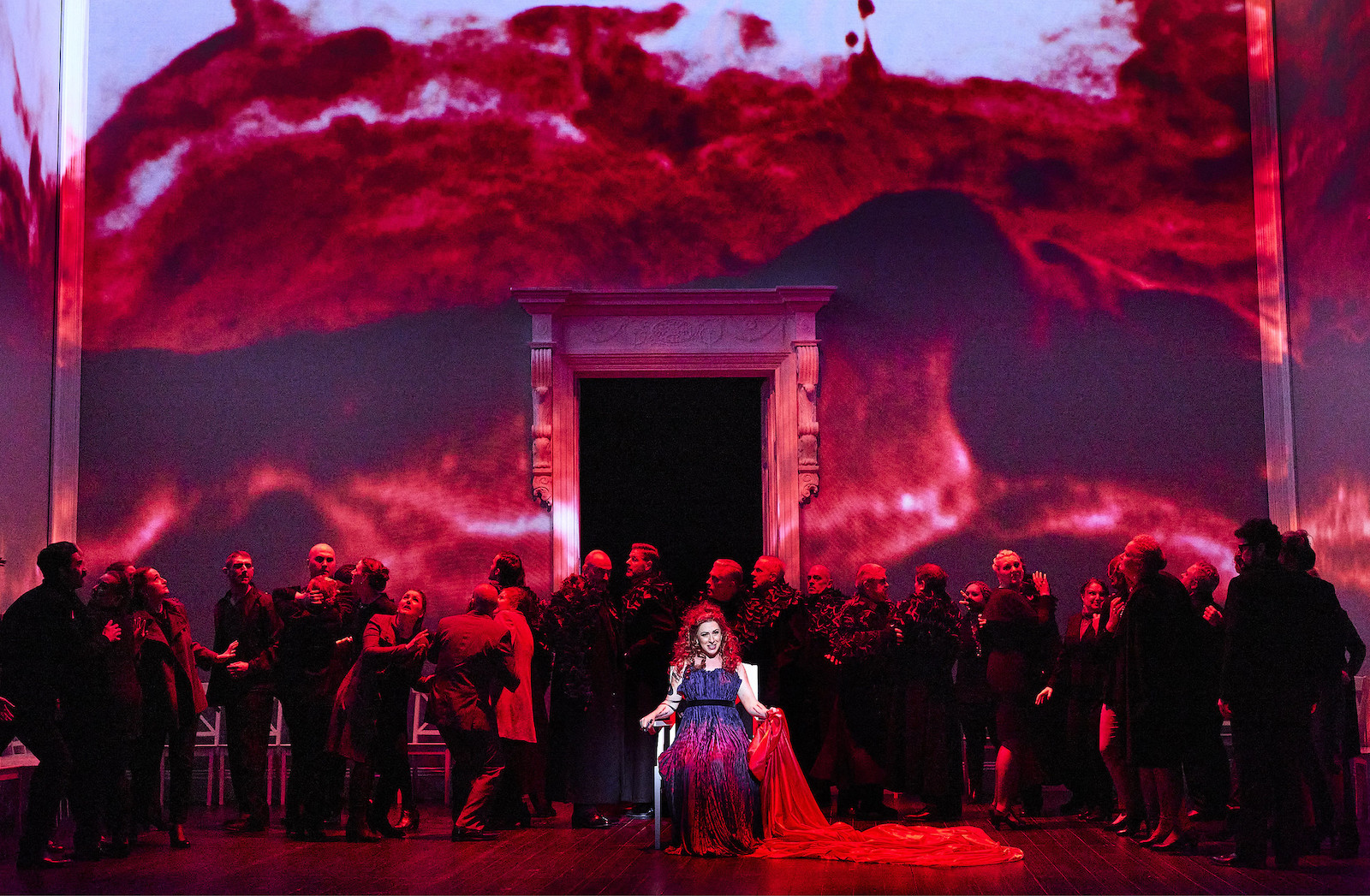
Idomeneo – REVIEW

Taking place on the Island of Crete shortly after the Trojan War, Mozart’s renowned opera, Idomeneo, follows the story of the Cretan King and his relationships with the gods, his kingdom, and his family.
Director Lindy Hume’s production enhances the central themes of humanity, love, grief, and mythic power.
An immersive set design is implemented for the show, depicting the aftermath of the war, Neptune’s strong tides, and the emotions of each character. The vivid stage showcase is brought to life by Mozart’s brilliant score and a commensurate orchestra led by conductor Johannes Fritzsch.

The story begins when the Cretan King Idomeneo gets caught in a sea storm after the daughter of the Greek King, Elettra, invokes the furies of the underworld in a jealous rage. The dancers on stage move to mimic the chaos and commotion caused by the storm, with the backdrop displaying imagery of rough tides. A large net is lowered onto the stage to illustrate the capture of Idomeneo, adding tension to the already stressful scenario.
Idomeneo pleads to Neptune and promises to make a sacrifice in return for being saved: the first living creature he sees on land is the one he will sacrifice. Alas, the first being Idomeneo comes face-to-face with his own son, Idamante. To avoid sacrificing his son, Idomeneo orders Idamante to stay away from him.

After getting rejected by his father who he ought to save, Idamante struggles with the damaged relationship. Caitlin Hulcup implements her vocal tone and physical movement to portray Idamante and express his deep sadness. The same goes for the wonderful Michael Schade as Idomeneo, with his performance matching varied sounds of the orchestra, contributing to his strong grieving process on stage.
Hulcup and Schade were effective in creating tension with each other during side by side scenes, making aware to the other characters that something was not quite right between them. It was only in their solos that the audience caught a glimpse of the raw emotion and internal battle. During each solo, the set reflected the internal discourse of each character.

By Idamante’s side is his lover Ilia, portrayed by Celeste Lazarenko. IIia provides Idamantes with comfort throughout his grieving, and later offers to sacrifice her own life for him. Although quiet at times, Lazarenko’s soprano voice is soothing and reflects the nurturing role of her character.
One of the stand-out moments on stage was performed by Emma Pearson as the passionate Elettra. Pearson delivered jealousy and rage through her strong vocals, perfectly fitting the crescendos and accelerando of Mozart’s score. As Idamante and Ilia’s connection grows stronger, Elettra dominates the stage in a whirl of fury. Her final exit from the stage is accompanied by a deep red backdrop, symbolising her passion and rage at losing her lover to her rival.

Each cast member produced fabulous performances, complimenting the set design and making the stage their own. Grief and humanity were explored consistently throughout the production, with each character displaying their authentic emotion and experience. Special recognition goes to Schade and Pearson, doing justice to Mozart’s renowned creation.










